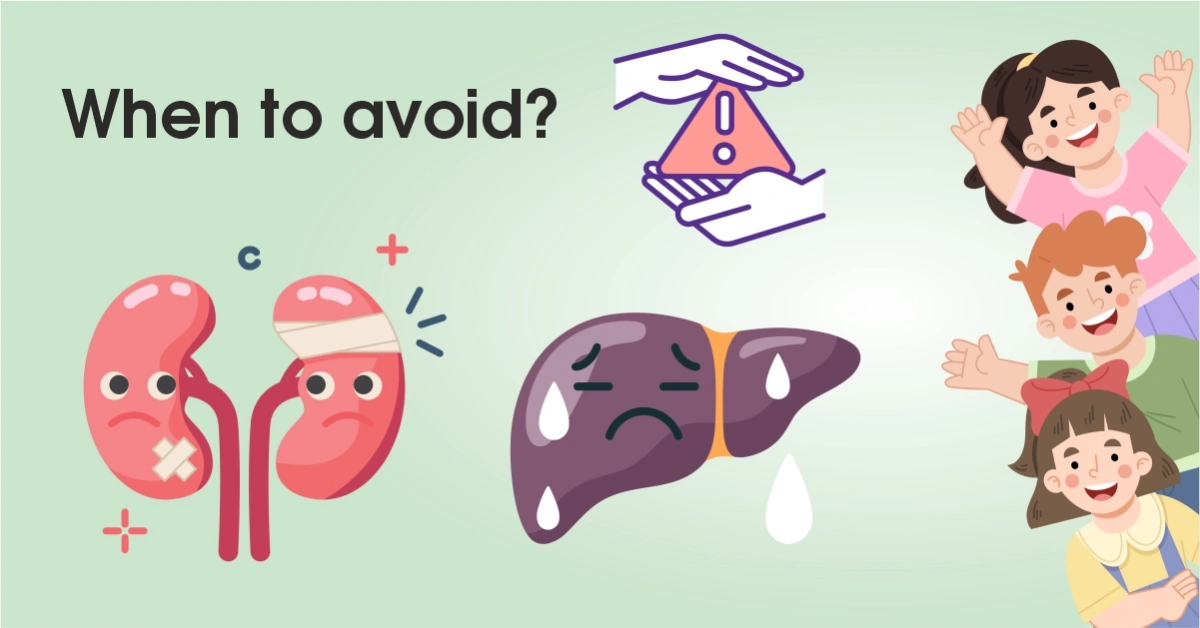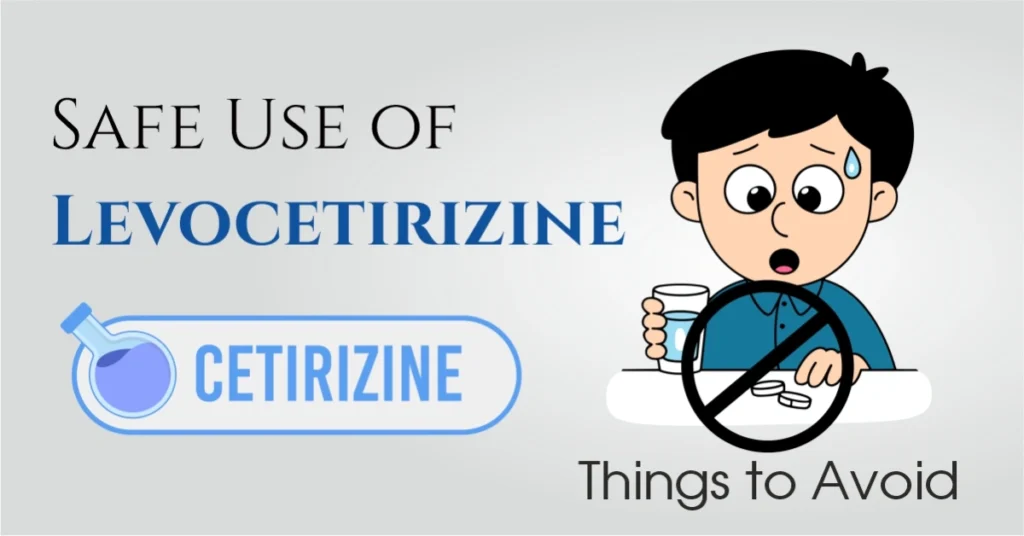Levocetirizine is commonly used to relieve allergy symptoms, but understanding levocetirizine interactions is important for safe use. Many people are unsure whether combining levocetirizine and alcohol is harmful or if certain foods or medicines should be avoided.
This confusion often leads to misuse or unwanted drowsiness. Some users also question if levocetirizine is safe or not, especially when taken with other daily medicines. This guide helps you use levocetirizine responsibly by explaining what to avoid and how to prevent side effects through safe habits.
Can You Take Levocetirizine with Alcohol?
Many people wonder if levocetirizine and alcohol can be taken together, especially when using the medicine at night for allergies. Mixing the two is not advised because alcohol can increase the drowsy effect of levocetirizine, making you feel more sleepy than usual.
This can affect your alertness and may not be safe if you need to stay awake or active after taking your dose. If you are thinking, “can I take levocetirizine with alcohol?”, it’s better to avoid combining them, particularly when taking the tablet for night use.
The combination may also affect your focus and slow down your responses, which is why a short warning about driving or doing tasks that need attention is important. Using both together may worsen sleepiness and tiredness, so it’s safer to avoid alcohol until the effect of levocetirizine wears off.
Levocetirizine Drug Interactions You Should Know
When taking levocetirizine, understanding drug interactions is key to safe use. While there’s no known interaction between levocetirizine and paracetamol according to interaction checkers, combining levocetirizine with another antihistamine (like cetirizine) or with multiple sedating agents can still raise risks of excess drowsiness, dizziness and slowed reactions. Always use the correct dose and be aware that levocetirizine overdose poses higher risk when combined with similar-acting medicines.
Important Points to Know About Interactions
- No interactions found between levocetirizine with paracetamol by major checkers.
- Use of levocetirizine with cetirizine or other antihistamines may cause additive sedative effects.
- Interaction list for levocetirizine shows over 250 potential drugs, including many moderate interactions.
- Even though risk may be low, exceeding dosing instructions or mixing with multiple CNS-depressant drugs increases overdose concerns.
Food Interactions: What Not to Eat with Levocetirizine
When you’re taking Levocetirizine, it’s important to know that certain foods and drinks can affect how the medicine works or how you feel afterwards. Although there aren’t many strict food bans listed, you should still pay attention to what you pair with your dose. For example, the combination of levocetirizine and alcohol is flagged because alcohol may increase drowsiness and slow your reactions.
Also one study shows that taking this medicine with a high-fat meal can delay absorption and reduce how much of the medicine your body actually uses, potentially altering its effect.
What to Avoid or Be Cautious With:
- Avoid or limit alcohol around the time you take levocetirizine; it may make you more sleepy or less alert.
- Be careful with very high-fat meals (for example, heavy fried or fast food) when dosing—you may delay how soon the medicine acts, which could reduce relief when you need it.
- While specific fruits like citrus aren’t listed as a major interaction with levocetirizine, in general citrus juices can affect how some medicines are absorbed—so when in doubt take your tablet with plain water rather than mixing with strong juices.
- Taking the tablet late at night after a big heavy meal might increase both sleepiness (because of the drug) and metabolic load (because of the meal), so try to keep dosing either after a light meal or at least an hour before/after heavy eating.
Who Should Be Extra Careful? (Warnings & Precautions)
If you’re using Levocetirizine, it’s important to follow these safety guidelines and warnings to make sure the medicine works well and doesn’t cause unnecessary risks.
- Before taking levocetirizine, tell your doctor about any other medicines, vitamins, herbal supplements, alcohol or sedative drinks you use — combining them can add to the risks.
- If you have kidney problems, liver impairment, urinary retention, enlarged prostate or severe renal disease, use caution — the drug may build up or cause side-effects more easily.
- Be alert: Taking levocetirizine with alcohol or driving before you know how it affects you might cause drowsiness, dizziness or slowed alertness.
- Although rare, there is a risk of levocetirizine overdose when not used as directed (for example taking much more than the recommended dose).
These precautions help to avoid situations where levocetirizine may become unsafe or less effective.
When to Avoid Levocetirizine Completely?

You should not take Levocetirizine if any of the following apply because of significant risks and known contraindications.
- End-stage renal disease (creatinine clearance < 10 mL/min) or patients on hemodialysis — levocetirizine is contraindicated in this group.
- Children aged 6 months to 11 years with renal impairment — this group is also listed under contraindications.
- Known hypersensitivity to levocetirizine or cetirizine (an antihistamine related to it) — if you are allergic, avoid taking it.
- Severe kidney problems, even if not exactly end-stage, require extreme caution or avoidance.
- Liver problems are not strictly contraindicated, but documented cases of liver injury suggest you should avoid using it when you have active severe hepatic disease.
If any of these conditions apply, you must consult your healthcare provider before using levocetirizine.
Is Levocetirizine Safe in Pregnancy, Breastfeeding & Elderly?
If you’re wondering is levocetirizine safe in pregnancy, it is generally recommended to use it only if a doctor advises, because the medicine may increase drowsiness and can interact with other medicines commonly taken during pregnancy. There is limited human research, so avoid combining it with alcohol or sedating drugs while pregnant.
For mothers asking whether levocetirizine for breastfeeding mothers is safe or not, small amounts can pass into breast milk, and it may cause sleepiness in both the mother and nursing child. Because of this interaction-linked drowsiness risk, many health sources suggest caution while breastfeeding.
Regarding older adults, levocetirizine is safe for elderly when monitored, but seniors are more sensitive to the sedative effects. Taking it along with alcohol, sleep aids or other antihistamines may increase confusion or imbalance, which raises fall risk.
If you fall under any of these groups, it’s best to speak with a healthcare professional before using levocetirizine, especially if you take other medicines that cause drowsiness.
Driving, Sleep & Daily Activity After Levocetirizine
When you take Levocetirizine, be mindful of how it may affect your alertness and coordination—especially if you plan to drive, exercise or use the tablet at night.
Key Points
- If you ask, “can I drive after taking levocetirizine?”, the answer is: Yes, but only after you’ve seen how your body reacts, especially if you’ve taken it with alcohol or another sedative. Sources indicate that when combined with alcohol or CNS-depressants, the drug can increase drowsiness, impair concentration and slow reaction time.
- For “levocetirizine before driving”, the safe approach is: take the medicine and allow sufficient time—at least one dosing interval—to test whether you feel sleepy or less alert before operating a vehicle or heavy machinery.
- Regarding “levocetirizine and sleep”, taking the tablet late at night is generally acceptable, but if you combine it with alcohol, another sedative or a heavy meal, the sedative effect may be amplified and disturb your sleep architecture or morning alertness.
- When considering “levocetirizine and exercise”, avoid strenuous activity right after dosing if you feel drowsy or dizzy—your coordination and reaction time may be affected, increasing the risk of accidents.
- Because alcohol can add to the sedative effect of levocetirizine, mixing the two may create a “double sedative hit”, often altering how you feel and how safe you are to drive or stay active.
Interaction Impact on Organs & Existing Health Conditions
While Levocetirizine itself does not commonly cause direct organ damage, its interactions with other medicines or existing health conditions may raise risks for certain groups. For example, people with kidney disease should be aware that drug-clearance may slow, making even standard doses more potent — hence, mention of levocetirizine side effects on kidney. Similarly, though rare, hepatic impairment may alter how the drug is processed, so levocetirizine side effects on liver must be monitored.
For those with chronic conditions — levocetirizine for diabetic patients safe or not, levocetirizine for heart patients safe or not, and levocetirizine for hypertension patients safe or not — the caution lies in the interaction of the allergy medicine with their routine drugs (for example, antihypertensives or antidiabetics) rather than the drug alone. Always consult your doctor if you have any of these conditions before taking levocetirizine.
Conclusion
Taking a few precautions can help you avoid unwanted levocetirizine interactions, especially when it comes to alcohol, daily medicines and existing health conditions. If you want to understand possible reactions in more detail, read the Side Effects of Levocetirizine article. You can also check the Contraindications guide and the Pregnancy, Breastfeeding & Age-Specific Use article for safer decision-making before using this medicine.
FAQs
Q1: Can I take Levocetirizine with alcohol?
Ans: It’s better to avoid alcohol while taking Levocetirizine. Both can cause drowsiness and slower reaction time, and the effect becomes stronger when combined. This may affect driving, coordination and alertness.
Q2: Can I take Levocetirizine with paracetamol?
Ans: Yes, Levocetirizine and paracetamol can generally be taken together as no major interaction is reported. Still, if you are taking other sedating medicines or have kidney issues, speak to a doctor before combining them.
Q3: What food should I avoid while taking Levocetirizine?
Ans: There is no specific food ban, but avoid alcohol and very high-fat meals close to the dose, as they may increase sleepiness or slow the medicine’s absorption. Taking the tablet with plain water is preferred.
Q4: Is Levocetirizine safe for breastfeeding mothers?
Ans: Use with caution. Small amounts can pass into breast milk and may cause sleepiness in both mother and baby. Breastfeeding women should consult a doctor before using Levocetirizine, especially if also taking other sedating medicines.



